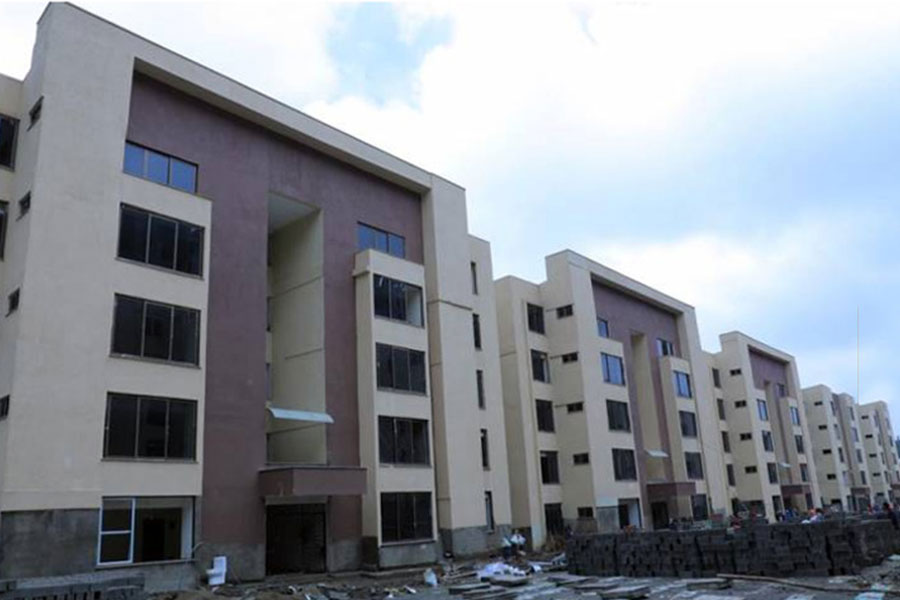
Viewpoints | May 11,2019
Feb 23 , 2019
By Samuel Kariuki
The next stage of the East African real estate market should be affordability for the working class, which investors will find more profitable, writes Samuel Kariuki, managing director of Centum Real Estate.
The last two decades of the real estate boom in East Africa has changed our building landscape and inventory, as it quite rightly should have done.
Our starting point was a region that was short of every kind of building, from housing to shops, offices, warehouses, hotels and even student hostels. In all, we faced a real estate landscape that was cripplingly underinvested. And we invested.
Choosing which type of investment barely mattered. Every kind of property sold fast. Developments got snatched up even before the building bricks were laid, simply because the market had little to offer.
We are no longer in that situation. But confusing our sector’s move to maturity with the end of real estate investment opportunities is a mistake.
In our first years of heavy real estate investment, we concentrated primarily in high-end assets, because we all believed they delivered higher margins and higher returns. In fact, that is no longer the case and may never have been the case. But when we were short of everything, we began with expensive buildings.
We built estates of detached houses and townhouses, high-end rental apartments, shopping malls, often huge ones, and towering office blocks. And in some areas, we began to reach market saturation. As a result, an investor putting up a million dollars worth of penthouses now, unless they are building for a specific unmet need, would be lucky to fill it in four years.
Yet only a tiny proportion of citizens in East Africa live in high-end neighbourhoods. When we look at the needs of the country’s working classes, market researchers have reported demand for two million units. Of this, over two-thirds are for earners who can afford rent of 180 dollars to half a thousand dollars a month.
Today, it is hard to pinpoint any stock that is coming to the market for this segment, certainly not to the scale that responds to this opportunity. Instead, investment in this type of property has been left to unsophisticated investors in what is largely a landlord market delivering developments, as is the case in the more densely populated Nairobi.
The buildings are unplanned and non-compliant with construction standards, as developers seek to lower construction costs and complete projects more quickly to increase returns.
However, a huge opportunity exists for a better quality of real estate in this segment. Moreover, while the perception that rental yields in high-end areas are higher has driven investors and developers to such areas in Kenya, research has shown that yields are higher in the mid-market areas.
For instance, the average rental yields in 2016 in the mid-market were 6.5pc, compared with 6.3pc for high-end apartments. That premium in the mid-market has continued. In 2018, mid-market rental yields ran at 5.4pc, compared to high-end yields at 5.3pc.
Moreover, demand is abundant.
Thus, if the National Social Security Fund (NSSF) were to put up an organised estate in a largely middle-class area, it would not struggle with tenancy, as tenants look for a quality stock that is currently close to nonexistent.
Such estates offer almost the same amenities as homes in high-end markets, including modern, 24-hour security systems with professional security personnel, ample parking space, borehole water to cover for water shortages and maintenance services, though at far lower rents.
Similarly, for developers building commercial properties such as stalls or retail centres, as opposed to large malls, occupancy will never be their biggest challenge as they attract small and medium-sized enterprises (SMEs) and private businesses dealing with the routine needs of East African consumers.
The investment opportunities in real estate remain enormous. But now it is the turn of the working classes, and the returns are just as high for investors.
It is a challenge we welcome, with the region’s annual investor conference, the East Africa Property Investment summit to be held in April in Nairobi, set to be the largest yet and a key platform for developing real estate policy and white papers for the government.
In this, our compass should be clearly set. We do not face a depressed real estate industry. We face the next opportunity, and it is far larger than the last one.
PUBLISHED ON
Feb 23,2019 [ VOL
19 , NO
982]


Viewpoints | May 11,2019

Featured | Sep 06,2020

Radar | Nov 20,2023

Sunday with Eden | Apr 01,2023

Radar | Jun 29,2025

Viewpoints | Aug 05,2023

Covid-19 | Jun 11,2021

Life Matters | Aug 23,2025

Fortune News | Aug 02,2025

Fortune News | Jun 01,2019

Photo Gallery | 179274 Views | May 06,2019

Photo Gallery | 169471 Views | Apr 26,2019

Photo Gallery | 160377 Views | Oct 06,2021

My Opinion | 137165 Views | Aug 14,2021
Commentaries | Oct 25,2025

Dec 22 , 2024 . By TIZITA SHEWAFERAW
Charged with transforming colossal state-owned enterprises into modern and competitiv...

Aug 18 , 2024 . By AKSAH ITALO
Although predictable Yonas Zerihun's job in the ride-hailing service is not immune to...

Jul 28 , 2024 . By TIZITA SHEWAFERAW
Unhabitual, perhaps too many, Samuel Gebreyohannes, 38, used to occasionally enjoy a couple of beers at breakfast. However, he recently swit...

Jul 13 , 2024 . By AKSAH ITALO
Investors who rely on tractors, trucks, and field vehicles for commuting, transporting commodities, and f...

Oct 25 , 2025
The regulatory machinery is on overdrive. In only two years, no fewer than 35 new pro...

Oct 18 , 2025
The political establishment, notably the ruling party and its top brass, has become p...

Oct 11 , 2025
Ladislas Farago, a roving Associated Press (AP) correspondent, arrived in Ethiopia in...

Oct 4 , 2025
Eyob Tekalegn (PhD) had been in the Governor's chair for only weeks when, on Septembe...

Oct 25 , 2025 . By YITBAREK GETACHEW
Officials of the Addis Abeba's Education Bureau have embarked on an ambitious experim...

Oct 26 , 2025 . By YITBAREK GETACHEW
The federal government is making a landmark shift in its investment incentive regime...

Oct 29 , 2025 . By NAHOM AYELE
The National Bank of Ethiopia (NBE) is preparing to issue a directive that will funda...

Oct 26 , 2025 . By SURAFEL MULUGETA
A community of booksellers shadowing the Ethiopian National Theatre has been jolted b...